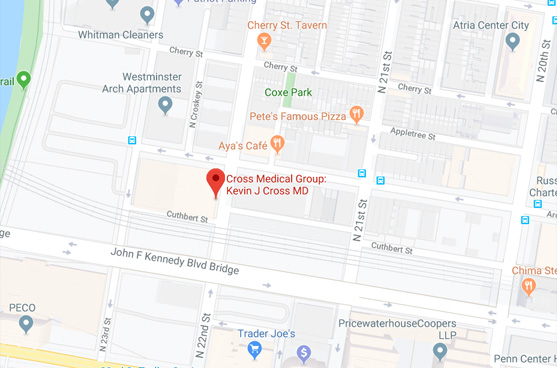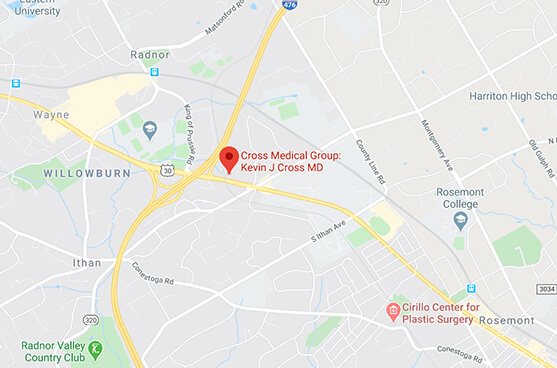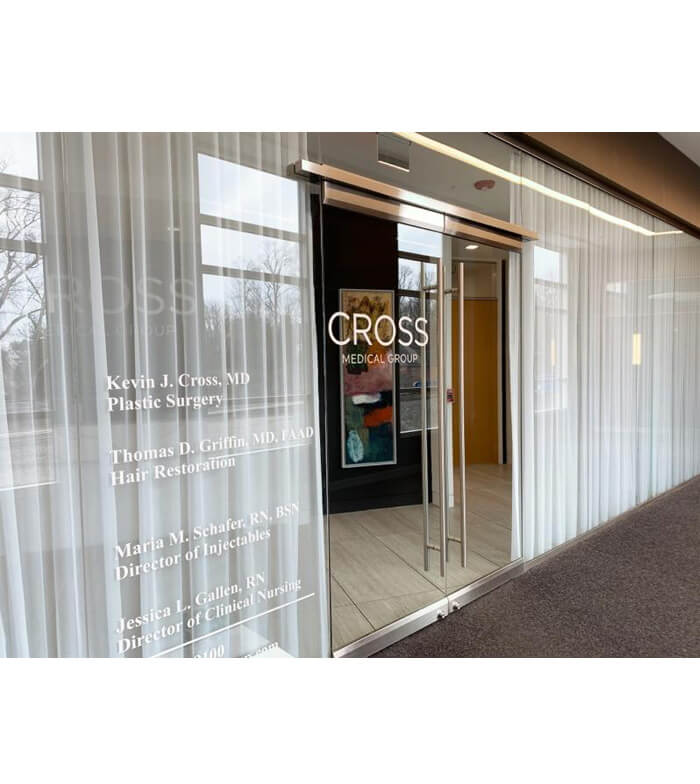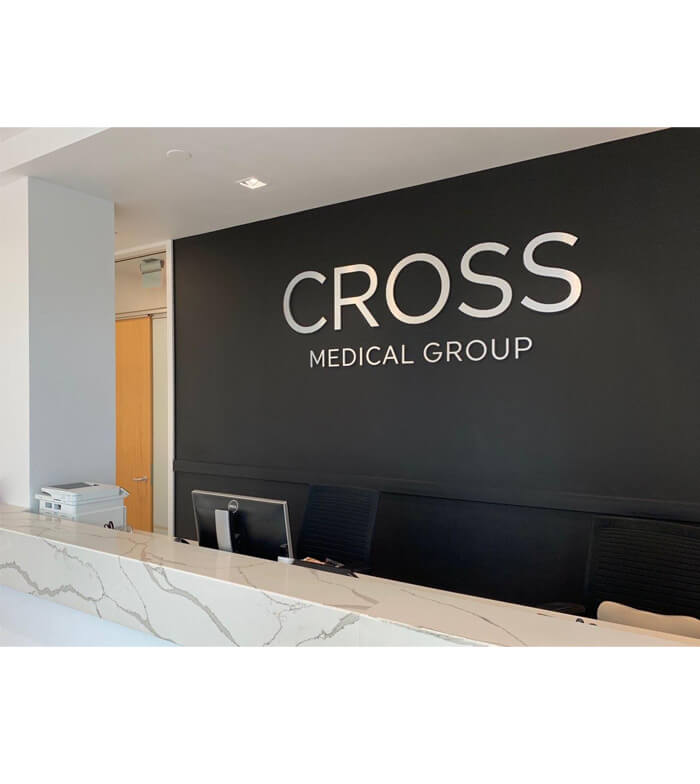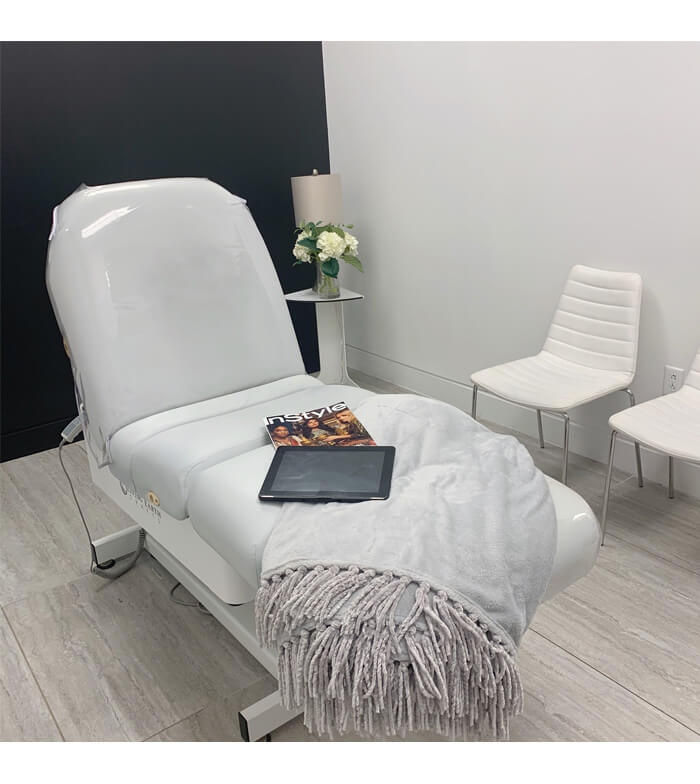PLATELET-RICH PLASMA (PRP)
Non-Surgical Hair Loss Treatments
In the interest of providing our hair loss patients with every potentially effective therapy, Cross Medical Group provides PRP for Philadelphia- area patients seeking injections in conjunction with hair replacement surgery. PRP, which stands for platelet-rich plasma, is the product of using one’s own blood obtained by centrifuging a sample drawn from the arm. The resulting fluid, as the name implies, contains high concentrations of platelets, which are the clotting cells in the blood.
Platelets are cells that are very active in the early phases of wound healing. They contain growth factors in their cytoplasm that promote tissue regeneration and renewal. These growth factors have the ability to stimulate ‘a’ hair follicle’s stem cells, leading to a prolonged growth phase and a resultant stronger and more lustrous hair. PRP is ideally done in conjunction with a hair care regimen, which will help to maintain the hair while the PRP improves the quality of the hair.
What Are Platelet-Rich Plasma (PRP) Injections Used For?
PRP injections are considered a form of regenerative medicine and have been used mostly in the field of orthopedics, where they help patients with arthritis and ligament, joint, and tendon injuries. PRP therapy is also often used by athletes for healing sports injuries and in cosmetic procedures for minimizing signs of aging.
Recently, PRP has shown a great deal of promise in the field of hair loss and is used as a scalp injection to promote hair growth. In our practice, it is also used to enhance the results of hair replacement surgery. We bathe the grafts in PRP and inject the recipient site with the plasma prior to the implantation of grafts harvested by follicular unit extraction. The growth factors it contains speed up grafts’ healing and enhance hair regrowth once they are implanted.
How Does PRP for Hair Loss Work?
Our team uses PRP injections as a standalone treatment for various types of hair loss. Although there are no case-controlled studies published in peer-reviewed medical journals proving the treatment’s efficacy, there appears to be significant anecdotal experience by physicians in the hair restoration field suggesting that PRP may be effective in promoting hair regrowth in some hair loss patients.
In preparation for this treatment, you should inform the doctor of any prescription and over-the-counter medications or supplements you’re currently taking, then follow instructions on what to avoid.
PRP injections are given in a series of four injection sessions spaced two to three months apart. In each session, the entire affected area of the scalp is injected, using a local anesthetic. The patient is evaluated and photographed before starting treatment and at each subsequent visit.
SCHEDULE A CONSULTATION
Learn more about what′s possible with platelet-rich plasma (PRP) in Philadelphia for hair restoration. Get in touch with Cross Medical Group of Philadelphia by calling (215) 561-9100 or submit a contact form to request a consultation.
Who is an Ideal Candidate for PRP for Hair Loss?
PRP is most beneficial in patients who still have hair on their scalp, or have mild to moderate hair shedding. Patients with hair loss that has progressed to the point that the hairs have diminished and scarred over will not be able to achieve hair regrowth with the PRP. In addition, those who have a blood or platelet disorder, active infections, viral outbreaks, or are using certain medications like blood thinners may have less than optimal results.
Recovery and Results from PRP for Hair Loss
PRP has minimal downtime. We ask that patients wait at least four hours after the PRP procedure before showering. Patients often bring a baseball cap or a scarf to the appointment to cover their PRP, soaked scalps for those four hours. Although the downtown is minimal, patients do occasionally swell or experience redness at the a]ected area within the first 24 hours. Patients often return to work afterward and are back to exercising the next day.
Results from the PRP take time and you can expect to notice improvement in six to nine months. While PRP will improve the quality and density of most hair types, to maintain the results a patient will need ongoing maintenance.
What Are Some Alternatives to Platelet-Rich Plasma (PRP)?
In addition to PRP, there are some other treatments for reducing hair loss. Hair transplant techniques such as follicular unit extraction (FUE) and strip harvesting are surgical options that will make a lasting improvement on hair growth. Lifestyle changes such as quitting smoking, modifying nutritional habits and reducing stress can also help to prevent hair loss.
SCHEDULE A CONSULTATION
Want to find out more about the benefits of hair restoration via platelet-rich plasma (PRP) in Philadelphia? For more details, call Cross Medical Group of Philadelphia at (215) 561-9100 or fill out a contact form to request a consultation.



